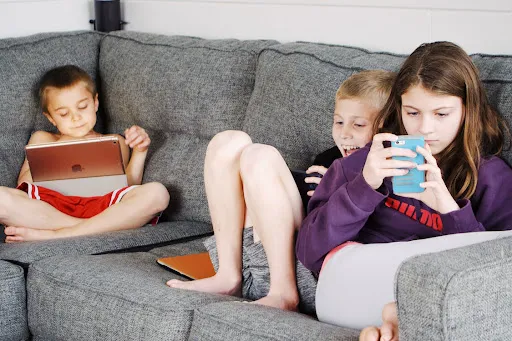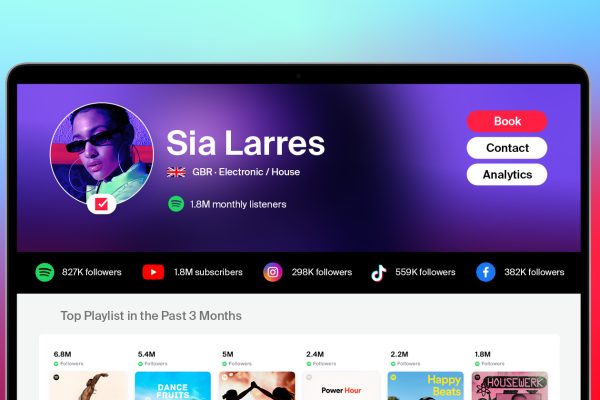In recent years, social media platforms like Instagram have become increasingly popular. They allow users to share photos, videos, and personal stories not just with friends and family but with a global audience.
While social media does have many positive benefits, such as providing people the ability to stay connected, there have also been concerns about the negative impact it may have on mental health.
Many studies suggest that frequent use of Instagram contributes to negative mental health. It may be responsible for increasing the levels of anxiety, depression, and poor self-image, especially among younger people.
It is thus essential to examine the potential dangers of social media use and understand how users can protect themselves.
Table of Contents
How Does Instagram Affect Mental Health?
With over 1 billion active users worldwide, Instagram has become one of the most popular social media platforms. However, despite its many benefits, research suggests that Instagram use may also have negative impacts on mental health, particularly depression.
Instagram is designed to connect people, yet it can also make users feel isolated and disconnected. This isn’t a recent discovery, however. Studies have always told us that too much social media use leads to feelings of loneliness and depression.
These feelings tend to occur when users compare their own lives to those of others based on the curated and filtered images they see on the platform. The constant barrage of these idealized images can make a lot of impressionable people feel inadequate and lonely.
The Serious Consequences of Cyberbullying
Cyberbullying is one of the more direct ways that the platform affects people’s mental health. Instagram makes it easy for bullies to hide behind anonymous profiles and attack others without consequence. This form of cyberbullying can cause severe emotional distress and has even led to suicide in many cases.
Victims of cyberbullying often feel helpless and powerless to stop the abuse, leading to a sense of hopelessness and despair. The inherent nature of people sharing cherry-picked experiences of their lives can lead to feelings of inadequacy and self-doubt as users tend to compare their own lives to the unrealistic standards set by others.
Addictive by Design
Instagram also causes depression due to its addictive nature. The platform is designed to be stimulating, with its endless scrolling feature and notifications that encourage users to stay engaged and online for long periods.
This can lead to a vicious cycle of social media use as users feel compelled to check their feeds regularly, even at the expense of their mental health.
This sort of excessive social media use causes sleep disturbances, affects productivity, and leads to a lack of focus and concentration, all of which can contribute to depression and other mental health issues.
What Are the Countermeasures to Deal With the Negative Impact of Instagram on Mental Health?
There are law firms, such as TorHoerman Law, LLC, that are actively investigating Instagram and its parent company, “Meta” and its other popular platform, Facebook. The potential for an Instagram lawsuit is considerably high due to the evidence that the platform knowingly makes the user experience an addicting one.
TorHoerman Law is a law firm that deals with many such cases and works to hold large companies and industries accountable through legal means via class action lawsuits and more.
With that said, what can be done on an individual level? Well, the concept of a “Digital Detox” has been gaining a lot of ground recently and is often considered one of the best ways to “reset” your brain after getting used to spending hours upon hours mindlessly scrolling.
The idea behind a digital detox is to create a healthier relationship with technology and social media by setting boundaries and limits on usage. This break from social media can help you reconnect with the present moment and focus on activities that promote well-being, such as exercise, reading, or spending time with loved ones.
If you are considering a digital detox, there are several steps you can take to make the process easier.
Firstly, set clear intentions about why you want to take a break from social media, such as to reduce anxiety or focus on personal growth.
Secondly, inform your friends and family of your plans, so that they can support you and understand why you may be less responsive to messages.
Thirdly, set boundaries and limits on your social media use, such as not checking your phone during meals or before bedtime.
Fill the time you would usually spend on social media with activities that promote well-being, such as going for a walk, practicing mindfulness meditation, or reading a book, etc. The benefits that come with a digital detox can start being noticed within a few days and often transforms the relationships people have with technology and social media.
Conclusion
Social media companies are driven by profit, and ad revenue is only generated when users stay online and engage in the platform. Thus, it is in the best interests of companies like Instagram to design the entire experience in such a way as to promote frequent and prolonged use of their platform.
Becoming aware of the mental health issues that arise from such prolonged social media use is the first step in getting better.
While the long-term solution of holding such companies accountable very much exists, it may be practical to start applying measures in your own life, such as digital detoxes and other methods, for a more immediate and practical solution.





